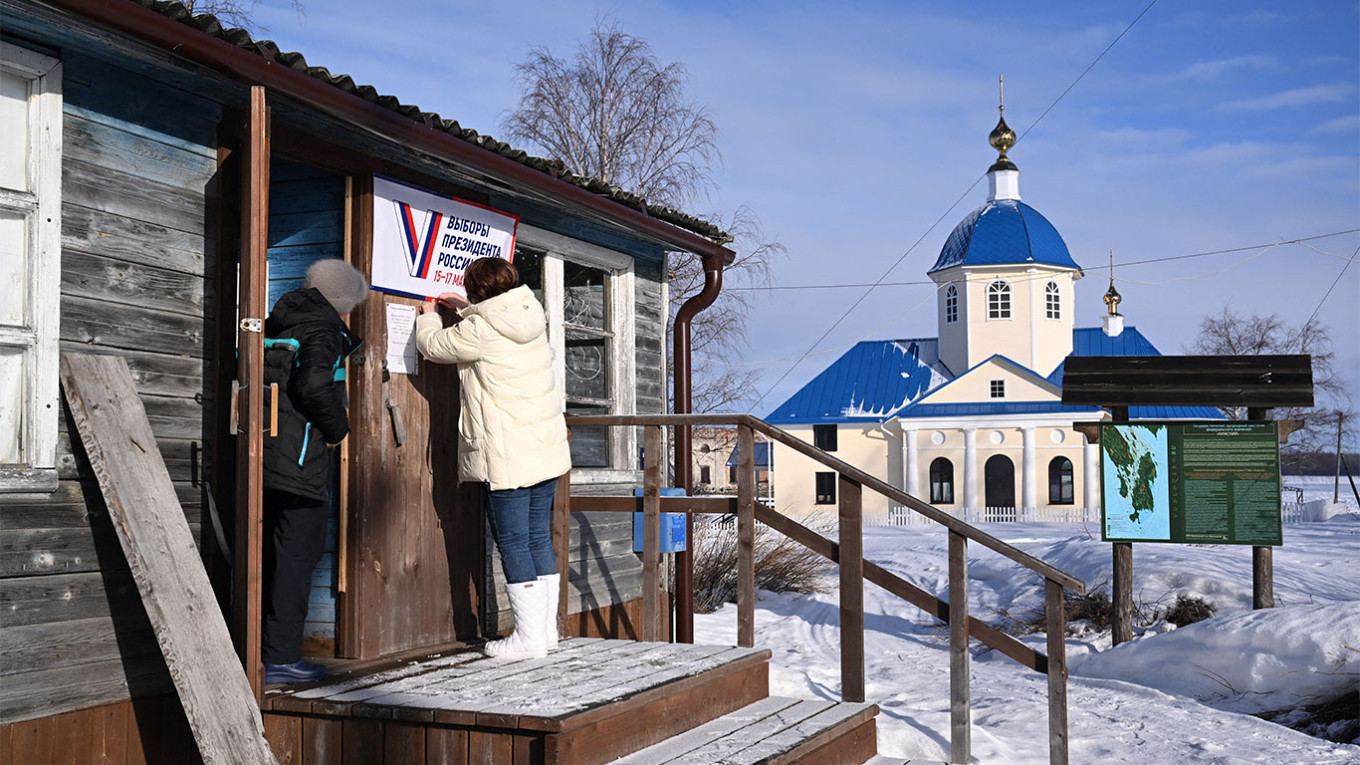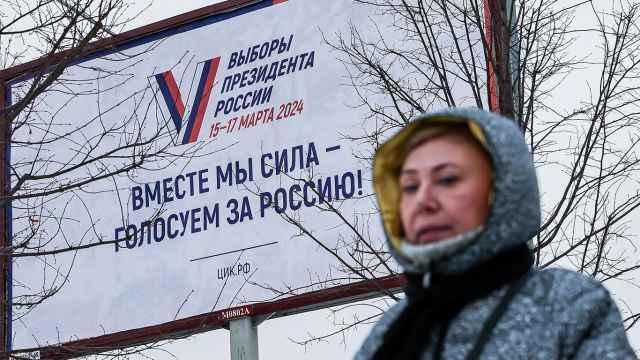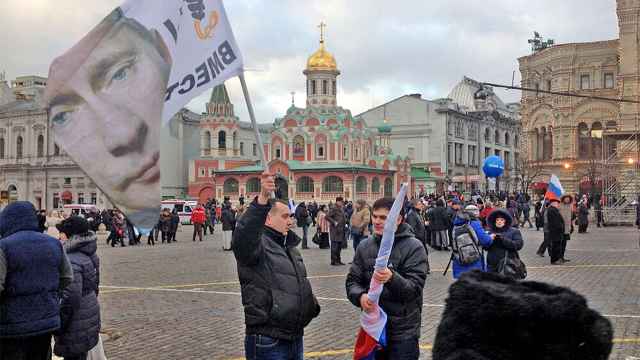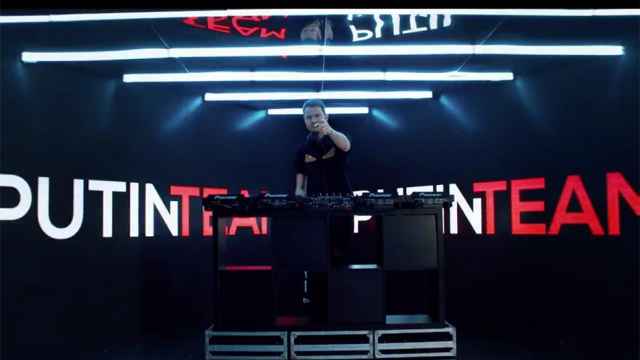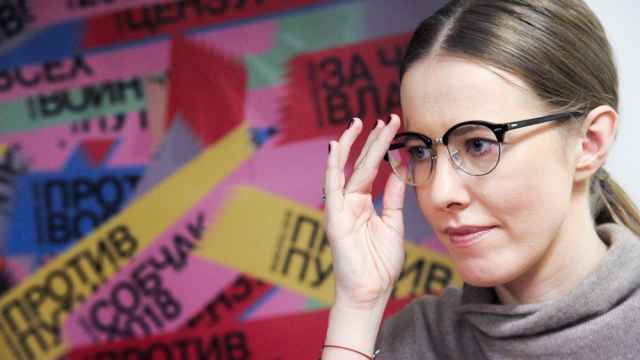MOSCOW – Almost no one doubts the outcome of Russia’s presidential election, where President Vladimir Putin is set to secure another six years in power with a huge lead over his opponents.
With the election under tight control and wartime repressions stronger than ever, anti-war Russians nonetheless have some options to show their discontent with the Kremlin in the March 15-17 vote, experts and opposition politicians say.
Spoiling the ballot
Putin’s competitors on the ballot are Vladislav Davankov of the New People party, Leonid Slutsky of the Liberal Democratic Party and Nikolai Kharitonov of the Communist Party. Though they are running on different platforms, all are widely seen as backed by the Kremlin.
With no real alternative to Putin and no “against all” column on the ballots, some activists and politicians have advocated for intentionally spoiling the ballot as a form of protest.
One Muscovite told The Moscow Times she planned to spoil her ballot because “it turns out that no one [of the candidates] suits you.”
“Previously, there was the ‘against all’ column and I believe that it should be on the ballots again,” the woman said on condition of anonymity due to the risks associated with speaking openly about politics.
Put’ Domoi (Way Home) — a movement of relatives of Russian mobilized soldiers with almost 70,000 Telegram subscribers — also supported spoiling ballots, calling the tactic “controversial” but saying that “but traditional methods do not bring results.”
“We propose not just to go to the polls, but also to make our voice louder in a more radical way: spoiling the ballots, because there is simply no candidate who is worried about demobilization,” the group said.
“This will become a clear signal of the ongoing protest and dissatisfaction with the current system, which does not answer our questions.”
‘Alternative’ candidate
For anti-war Russians who wish to cast a vote, Davankov of the “liberal” New People party is seen by some opposition figures as an alternative candidate after both anti-war presidential hopefuls, Boris Nadezdhin and Yekaterina Duntsova, were barred from the ballot.
While Davankov himself expressed doubts when asked if he planned to win the election, his candidacy has become a subject of heated discussion in recent days.
Davankov, 40, a former businessman and current State Duma deputy, calls for “peace and negotiations” with Ukraine, an end to censorship and normalizing Russia’s relations with the West in his campaign platform.

Davankov, who is expected to get second place with 6% of the vote, also advocates for the end of “persecution for dissent and ideological censorship,” encourages Russians who moved abroad following the invasion to return, and opposes an abortion ban.
He also calls for unblocking banned Western social media platforms, to stop persecuting people for online posts and comments and to ease restrictions on “foreign agents.”
During the campaign, he has taken several steps that could be seen as a shift from the Kremlin’s stance. He endorsed Nadezhdin — a move possibly aimed at attracting liberal voters to his side — and was the only registered candidate to comment on the death of Kremlin critic Alexei Navalny, calling it “a tragedy.”
Pro-war, pro-Kremlin lawmaker Sergei Mironov demanded Davankov’s withdrawal from the election for his stance on the war with Ukraine.
Some Russian opposition figures — like exiled politician Maxim Katz — say Davankov’s intention to start peace talks with Ukraine is enough reason to vote for him.
Others accuse him of being a Kremlin puppet, pointing to how he did not stand up against the invasion in 2022.
New People was the only parliamentary party in 2022 to initially question Moscow’s recognition of the independence of Ukraine's Luhansk and Donetsk regions, which served as a pretext for the full-scale invasion. The party ultimately voted in favor of the move, and Davankov was sanctioned by the West for “violating Ukraine's sovereignty.”
“He voted for the annexation of [Ukraine’s] regions,” said Leonid Volkov, a close ally of Navalny. “He is one of the war criminals, he is no better and no worse than Putin.”
According to experts and some opposition politicians, Davankov is the candidate for whom one can vote when the others are “even worse.”
“His distinction is in offering an alternative, while the other candidates are echoing the rhetoric of the authorities," political analyst Ilya Grashchenkov told The Moscow Times. “This gives him the chance to accumulate various groups of people dissatisfied [with the government] around him.”
Some anti-war Russians also say that voting for Davankov could show the scale of dissent against the Kremlin in the absence of a genuine alternative.
“Imagine that there are three obvious scumbags on the ballot who want to kill you personally and another one who has no such intentions,” said Pavel Sychev, a regional campaign head for Nadezhdin.
“Of course, you will vote for him.”
‘Anyone but Putin’
Navalny and his team revealed their strategy for the election shortly before he died in an Arctic prison.
“We urge everyone to come to the polling stations and vote against Vladimir Putin. This can be done by checking the boxes for any other candidate,” said the strategy published in December.
Navalny called on supporters to go to the polls on the final day of the vote in order to minimize the risk of voter fraud.
One Muscovite told The Moscow Times that although she is not a Navalny supporter, she would still vote for “any candidate but Putin.”
“The result is already predicted, but I will vote anyway. Everyone will understand that most of these votes [for anyone but Putin] are protest votes,” she said.
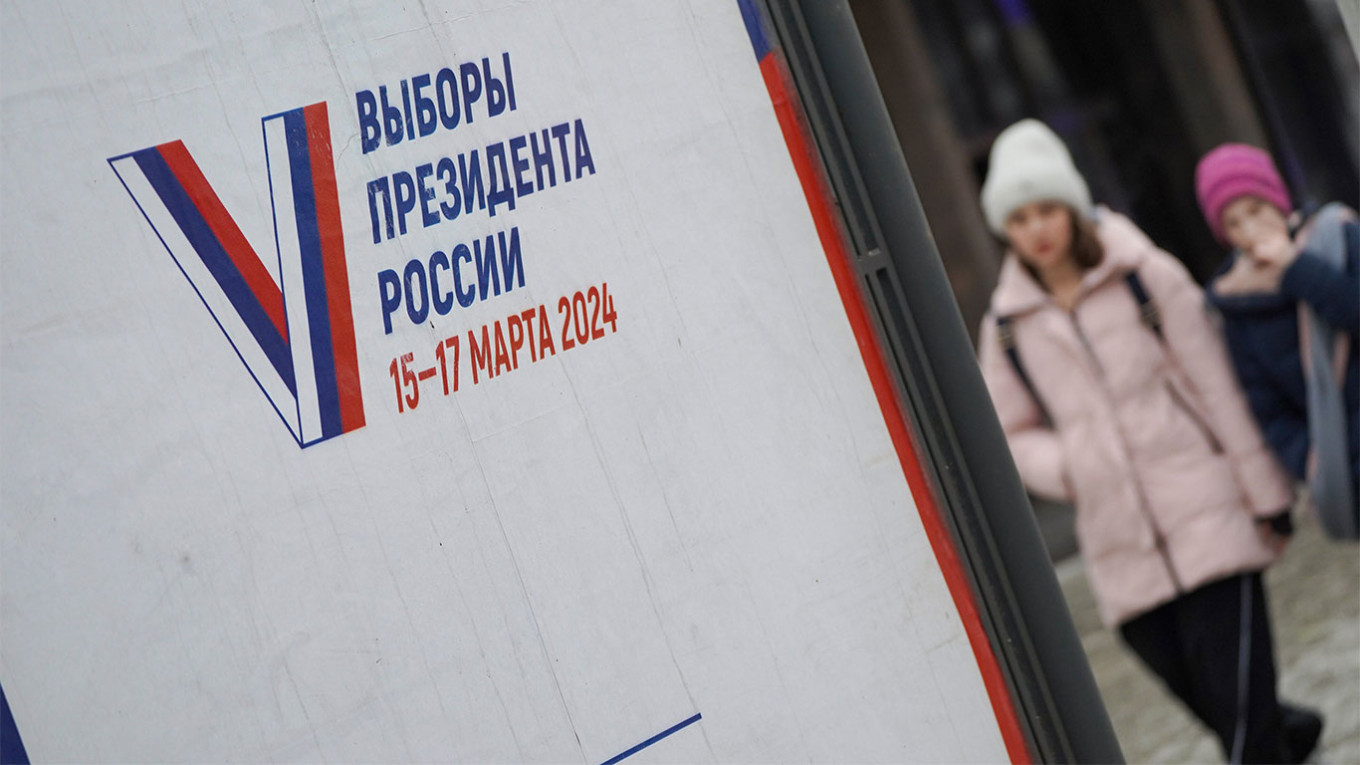
Boycott
With all the presidential candidates seen as hand-picked by the Kremlin, some Russians suggest boycotting the vote altogether.
The liberal Yabloko party told its supporters that they have two options: to spoil the ballot or boycott the election.
“There is no alternative on the ballot to the government's policy of continuing hostilities and killing people,” the party said.
‘Noon against Putin’
This month, Navalny’s widow Yulia Navalnaya called on her late husband's supporters to protest against Putin by going to polling stations “at noon” on the final day of the vote.
The campaign was also backed by opposition politicians including exiled Kremlin critic Mikhail Khodorkovsky and jailed opposition figure Vladimir Kara-Murza.
Navalnaya called on voters to cast their ballot for any candidate besides Putin, spoil their ballot or simply stand at polling places and boycott the vote.
“I want to do what [Alexei] thought was right, and I urge everyone to come to his memory,” Navalnaya said.
A Message from The Moscow Times:
Dear readers,
We are facing unprecedented challenges. Russia's Prosecutor General's Office has designated The Moscow Times as an "undesirable" organization, criminalizing our work and putting our staff at risk of prosecution. This follows our earlier unjust labeling as a "foreign agent."
These actions are direct attempts to silence independent journalism in Russia. The authorities claim our work "discredits the decisions of the Russian leadership." We see things differently: we strive to provide accurate, unbiased reporting on Russia.
We, the journalists of The Moscow Times, refuse to be silenced. But to continue our work, we need your help.
Your support, no matter how small, makes a world of difference. If you can, please support us monthly starting from just $2. It's quick to set up, and every contribution makes a significant impact.
By supporting The Moscow Times, you're defending open, independent journalism in the face of repression. Thank you for standing with us.
Remind me later.



